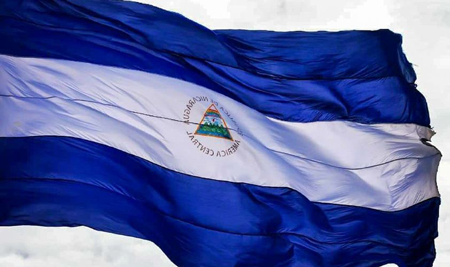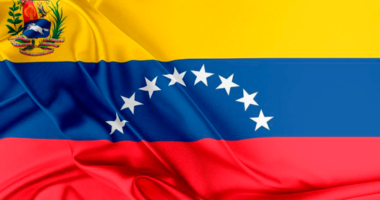
Nicaragua sobre caso de Alemania en Corte Internacional de Justicia
El Gobierno de Reconciliación y Unidad Nacional informa al pueblo de Nicaragua y a la comunidad internacional que el día de hoy la Corte Internacional de Justicia se pronunció sobre la solicitud de medidas provisionales solicitadas por Nicaragua contra la República Federal de Alemania por violaciones a la Convención para la Prevención y la Sanción del Delito de Genocidio. Los Convenios de Ginebra de 1949 y sus Protocolos Adicionales, los principios intransgredibles del derecho internacional humanitario y otras normas imperativas del derecho internacional general en relación con el territorio palestino ocupado, en particular la Franja de Gaza. En su solicitud al alto tribunal Nicaragua hizo fundamentalmente dos peticiones, la primera que Alemania suspendiera su apoyo militar a Israel y la segunda que renovara su apoyo financiero a la Agencia de Obras Públicas y Socorro de las Naciones Unidas para los Refugiados de Palestina en el Cercano Oriente (UNRWA por sus siglas en inglés).
La Corte decidió que según las circunstancias al día de hoy no era necesario hacer uso de medidas provisionales, en razón de que Alemania explicó que había disminuido significativamente el monto del material a exportarse a Israel de 200 millones en octubre 2023 a 1 millón en marzo 2024, y que no se habían aprobado más licencias de armas. Además, Alemania declaró también que había aportado nuevos fondos para UNRWA, los cuales al día de hoy han sido completamente renovados. En ese sentido, Nicaragua ve con satisfacción el resultado de su campaña por el cumplimiento de las obligaciones internacionales de Alemania según estas convenciones y de la ordenes de la Corte en el caso incohado por Sudáfrica contra Israel, en el que ya se había señalado el riesgo de genocidio en Gaza.
En ese sentido, después de reafirmar su preocupación por la catastrófica situación en Gaza, la Corte fundamentalmente recordó que es una obligación de todos los estados parte que tienen conocimiento o que normalmente deberían tener conocimiento del serio riesgo de la comisión de un genocidio a emplear todos los medios razonables a su disposición para prevenir el genocidio, incluyendo a Alemania. De manera similar, la Corte señaló que, bajo cualquier circunstancia, sea parte de un conflicto armado o no, se debe respetar la obligación de asegurar que se cumpla con el derecho humanitario internacional.
Por otro lado, en su decisión la Corte también enfatiza que considera particularmente importante recordar a todos los estados de sus obligaciones internacionales relacionadas a la transferencia de armas a las partes de un conflicto armado, para evitar el riesgo que dichas armas sean utilizadas para violar las convenciones mencionadas. Y en ese sentido la Corte recalcó que estas obligaciones incumben a Alemania como estado parte de las convenciones en lo que respecta a su provisión de armas a Israel.
Finalmente, la Corte rechazó la solicitud de Alemania de descartar el caso por falta de jurisdicción, por lo cual se continuará con el proceso que implica hacer una revisión de la conducta de Alemania previo a que redujera su apoyo material a Israel, entre otros puntos.
El Gobierno de Reconciliación y Unidad Nacional desea expresar su reconocimiento a la decisión de la Corte de recordar a todos los Estados sus obligaciones internacionales con respeto a la transferencia de armas a Israel, incluyendo a Alemania. Lo anterior reafirma que ningún estado puede darse por no enterado de sus obligaciones con respecto al riesgo de genocidio en Gaza y otras violaciones de derecho internacional.
El Gobierno de Reconciliación y Unidad Nacional reafirma su firme compromiso con el Estado de Derecho a Nivel Internacional y la solución pacífica de controversias entre Estados.
Managua, 30 de abril de 2024
Gobierno de Reconciliación y
Unidad Nacional
República de Nicaragua
NICARAGUA ON GERMANY CASE AT THE INTERNATIONAL COURT OF JUSTICE
The Government of Reconciliation and National Unity informs the people of Nicaragua and the international community that today the International Court of Justice ruled on the request for provisional measures made by Nicaragua against the Federal Republic of Germany for violations of the Convention on the Prevention and Punishment of the Crime of Genocide, the Geneva Conventions of 1949 and their Additional Protocols, the instransgressible principles of international humanitarian law and other peremptory norms of general international law in relation to the Occupied Palestinian Territory, in particular the Gaza Strip. In its application to the high court Nicaragua made essentially two requests, first, that Germany suspend its military support to Israel, and, second, that it renew its financial support to the United Nations Relief and Works Agency for Palestine Refugees in the Near East (UNRWA).
The Court decided that under the current circumstances there was no need for interim measures, as Germany explained that it had significantly decreased the amount of material to be exported to Israel from 200 million in October 2023 to 1 million in March 2024, and that no further arms licenses had been approved. In addition, Germany also stated that it had provided new funds for UNRWA, which as of today have been completely renewed. In this regard, Nicaragua welcomes the outcome of its campaign for Germany’s compliance with its international obligations under these Conventions and the Court’s Orders in the case brought by South Africa against Israel, in which the risk of genocide in Gaza had already been pointed out.
In that regard, after reaffirming its concern about the catastrophic situation in Gaza, the Court essentially recalled that it is an obligation of all states parties that are aware or should normally be aware of the serious risk of the commission of genocide to employ all reasonable means at their disposal to prevent genocide, including Germany. Similarly, the Court noted that under all circumstances, whether part of an armed conflict or not, the obligation to ensure compliance with international humanitarian law must be respected.
On the other hand, in its decision the Court also emphasizes that it considers it particularly important to remind all states of their international obligations relating to the transfer of arms to parties to an armed conflict, in order to avoid the risk that such arms may be used to violate the aforementioned conventions. And in that regard the Court emphasized that these obligations are incumbent upon Germany as a state party to the Conventions with regard to its provision of arms to Israel.
Finally, the Court rejected Germany’s request to dismiss the case for lack of jurisdiction, and will therefore continue with the process which involves a review of Germany’s conduct before it reduced its material support to Israel, among other points.
The Government of Reconciliation and National Unity wishes to express its recognition of the Court’s decision to remind all states of their international obligations with respect to the transfer of arms to Israel, including Germany. This reaffirms that no state can ignore its obligations with respect to the risk of genocide in Gaza and other violations of international law.
The Government of Reconciliation and National Unity reaffirms its firm commitment to the rule of law at the international level and the peaceful settlement of disputes between states.
Managua, april 30, 2024
Government of Reconciliation
and National Unity
Republic of Nicaragua




